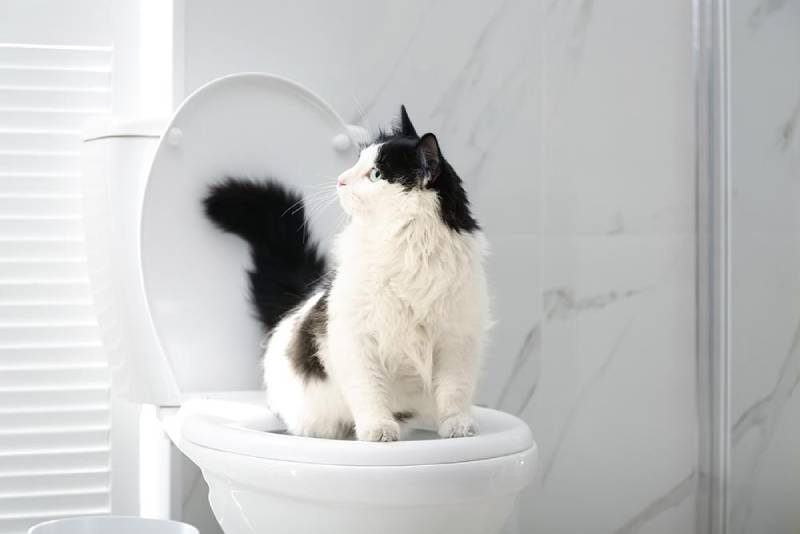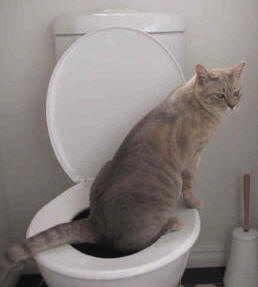Avoid Clogs and Damage: Don't Flush Cat Poop Down Your Toilet - Professional Recommendations
Avoid Clogs and Damage: Don't Flush Cat Poop Down Your Toilet - Professional Recommendations
Blog Article
How do you really feel about Can You Flush Cat Poo or Litter Down the Toilet??

Intro
As feline proprietors, it's important to bear in mind how we get rid of our feline good friends' waste. While it may appear practical to purge cat poop down the commode, this practice can have destructive effects for both the atmosphere and human health and wellness.
Ecological Impact
Purging cat poop introduces hazardous microorganisms and bloodsuckers right into the water, posing a substantial threat to aquatic communities. These pollutants can adversely impact aquatic life and compromise water high quality.
Wellness Risks
Along with ecological concerns, flushing feline waste can also pose health and wellness dangers to humans. Cat feces might consist of Toxoplasma gondii, a parasite that can trigger toxoplasmosis-- a potentially severe illness, specifically for pregnant women and individuals with weakened body immune systems.
Alternatives to Flushing
Luckily, there are more secure and much more liable ways to throw away pet cat poop. Consider the complying with options:
1. Scoop and Dispose in Trash
One of the most usual approach of dealing with cat poop is to scoop it into a biodegradable bag and throw it in the garbage. Make certain to make use of a committed litter scoop and take care of the waste promptly.
2. Usage Biodegradable Litter
Opt for eco-friendly cat clutter made from products such as corn or wheat. These trashes are environmentally friendly and can be securely dealt with in the trash.
3. Hide in the Yard
If you have a lawn, think about hiding cat waste in a marked area away from veggie gardens and water sources. Make certain to dig deep sufficient to stop contamination of groundwater.
4. Set Up a Pet Waste Disposal System
Buy an animal garbage disposal system specifically developed for pet cat waste. These systems use enzymes to break down the waste, decreasing smell and ecological impact.
Conclusion
Accountable family pet possession expands beyond providing food and shelter-- it likewise includes appropriate waste administration. By avoiding purging feline poop down the bathroom and going with different disposal approaches, we can lessen our ecological footprint and safeguard human health.
Why Can’t I Flush Cat Poop?
It Spreads a Parasite
Cats are frequently infected with a parasite called toxoplasma gondii. The parasite causes an infection called toxoplasmosis. It is usually harmless to cats. The parasite only uses cat poop as a host for its eggs. Otherwise, the cat’s immune system usually keeps the infection at low enough levels to maintain its own health. But it does not stop the develop of eggs. These eggs are tiny and surprisingly tough. They may survive for a year before they begin to grow. But that’s the problem.
Our wastewater system is not designed to deal with toxoplasmosis eggs. Instead, most eggs will flush from your toilet into sewers and wastewater management plants. After the sewage is treated for many other harmful things in it, it is typically released into local rivers, lakes, or oceans. Here, the toxoplasmosis eggs can find new hosts, including starfish, crabs, otters, and many other wildlife. For many, this is a significant risk to their health. Toxoplasmosis can also end up infecting water sources that are important for agriculture, which means our deer, pigs, and sheep can get infected too.
Is There Risk to Humans?
There can be a risk to human life from flushing cat poop down the toilet. If you do so, the parasites from your cat’s poop can end up in shellfish, game animals, or livestock. If this meat is then served raw or undercooked, the people who eat it can get sick.
In fact, according to the CDC, 40 million people in the United States are infected with toxoplasma gondii. They get it from exposure to infected seafood, or from some kind of cat poop contamination, like drinking from a stream that is contaminated or touching anything that has come into contact with cat poop. That includes just cleaning a cat litter box.
Most people who get infected with these parasites will not develop any symptoms. However, for pregnant women or for those with compromised immune systems, the parasite can cause severe health problems.
How to Handle Cat Poop
The best way to handle cat poop is actually to clean the box more often. The eggs that the parasite sheds will not become active until one to five days after the cat poops. That means that if you clean daily, you’re much less likely to come into direct contact with infectious eggs.
That said, always dispose of cat poop in the garbage and not down the toilet. Wash your hands before and after you clean the litter box, and bring the bag of poop right outside to your garbage bins.
https://trenchlesssolutionsusa.com/why-cant-i-flush-cat-poop/

As an enthusiastic person who reads about Can You Flush Cat Poo or Litter Down the Toilet?, I think sharing that excerpt was a good idea. Enjoyed our posting? Please share it. Let other people discover it. We recognize the value of reading our article about Can You Flush Cat Poo or Litter Down the Toilet?.
Visit Page Report this page